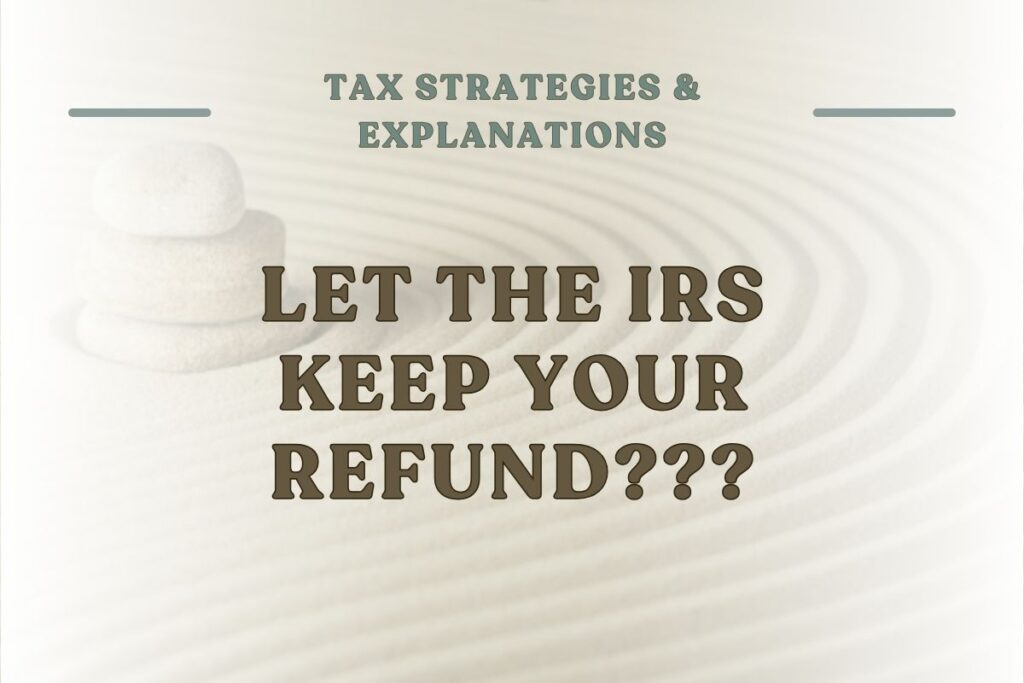Tax Refunds for Therapists: Should You Let the IRS Keep It or Take the Cash?

The Big Question: Take the Refund or Let the IRS Keep It?
When therapists receive a tax refund, the natural instinct is to deposit it into their personal bank account and use it for personal spending or saving.
But did you know you have the option to let the IRS hold onto your overpayment and apply it to next year’s taxes instead?
“Well why on earth would I do that???”
While taking the cash might feel like the obvious choice, there are situations where allowing the IRS to keep the money and offset future taxes could simplify your finances and reduce stress.
Let’s explore both options to help you decide.
Option 1: Let the IRS Keep Your Refund
Why This Might Make Sense:
Simplifies Tax Planning
Applying your overpayment can cover all or part of your first-quarter estimated tax payment, which is due on April 15th.
For some therapists, especially those who dread writing multiple checks to the IRS, this option reduces the mental load of tax planning.
Avoids Immediate Spending Temptations
Let’s face it: depositing a refund into your personal account can lead to impulsive spending. By applying it to next year’s taxes, you remove the temptation and ensure the money is used responsibly.
Minimizes Quarterly Payment Hassle
If your overpayment is large enough, and you’re withholding the proper amount of taxes from your paycheck, it could eliminate the need to make multiple estimated payments throughout the year.
You might also want to read our article on setting up your bank accounts in a way that helps you save for taxes, as well as our comprehensive article about saving for and paying estimated taxes.
Option 2: Take the Refund
Why This Might Make Sense:
Personal Financial Flexibility
Depositing the refund into your personal account gives you control over how to use the money, whether for immediate expenses, savings, or discretionary spending.
Emergency Fund Contributions
If your personal savings need a boost, a tax refund can help create or replenish an emergency fund to prepare for unexpected expenses.
Debt Reduction
Paying down high-interest personal debt, like credit cards or student loans, is often a smart way to use a tax refund.
Treat Yourself
There’s nothing wrong with using part of your refund to enjoy something meaningful—whether it’s a short vacation, a special purchase, or a fun experience with loved ones.
How to Decide Whether to Apply Your Overpayment or Take the Refund
The decision boils down to your financial goals and needs:
Let the IRS Keep It If:
- You want to simplify tax planning and reduce the hassle of making quarterly payments.
- You have stable personal savings and don’t need immediate access to the refund.
- You’d prefer to avoid the temptation to spend the money impulsively.
Take the Refund If:
- You need the money for personal or family expenses.
- You’re focused on building savings, paying off debt, or making a special purchase.
- You prefer having full control over how your refund is used.
The Bottom Line
There’s no universally “right” answer when it comes to tax refunds. The key is to align your decision with your financial priorities, whether that means simplifying your tax obligations or taking the cash for personal use.